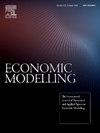国家可持续发展实践对幸福有影响吗?
IF 4.7
2区 经济学
Q1 ECONOMICS
引用次数: 0
摘要
这项研究率先对2006年至2021年136个国家的国家级ESG(环境、社会和治理)指标如何影响国民幸福感进行了全球纵向分析。通过将幸福感和腐败观念作为两个相反的指标进行考察,研究表明,ESG的影响因收入水平和分位数而异,低收入国家受影响较小,这表明一些基础设施比ESG更重要。利用分位数和面板阈值回归,该研究揭示了ESG相关实践(如地表温度、可再生能源产出、互联网和电力获取)的不对称效应,并确定了ESG指数与幸福或腐败之间的非线性关系(如u型和倒u型模式)。这些发现揭示了一种“好事太多”的现象,并强化了ESG在可持续发展中的微妙作用。本文章由计算机程序翻译,如有差异,请以英文原文为准。
Do country sustainability practices matter to happiness?
This study pioneers a global, longitudinal analysis of how country-level ESG (environmental, social, and governance) metrics shape national happiness across 136 nations from 2006 to 2021. By examining both happiness and corruption perceptions as two opposite indicators, the research reveals that ESG impacts vary across income levels and quantiles, with low-income nations being less influenced, indicating that some infrastructures are more vital than ESG. Using quantile and panel threshold regression, the study uncovers asymmetric effects of ESG-related practices (e.g., land surface temperature, renewable energy output, internet, and access to electricity), and identifies nonlinear relationships—such as U-shaped and inverted U-shaped patterns—between ESG indices and happiness or corruption. These findings expose a “too-much-of-a-good-thing” phenomenon and reinforce the nuanced role of ESG in sustainable development.
求助全文
通过发布文献求助,成功后即可免费获取论文全文。
去求助
来源期刊

Economic Modelling
ECONOMICS-
CiteScore
8.00
自引率
10.60%
发文量
295
期刊介绍:
Economic Modelling fills a major gap in the economics literature, providing a single source of both theoretical and applied papers on economic modelling. The journal prime objective is to provide an international review of the state-of-the-art in economic modelling. Economic Modelling publishes the complete versions of many large-scale models of industrially advanced economies which have been developed for policy analysis. Examples are the Bank of England Model and the US Federal Reserve Board Model which had hitherto been unpublished. As individual models are revised and updated, the journal publishes subsequent papers dealing with these revisions, so keeping its readers as up to date as possible.
 求助内容:
求助内容: 应助结果提醒方式:
应助结果提醒方式:


